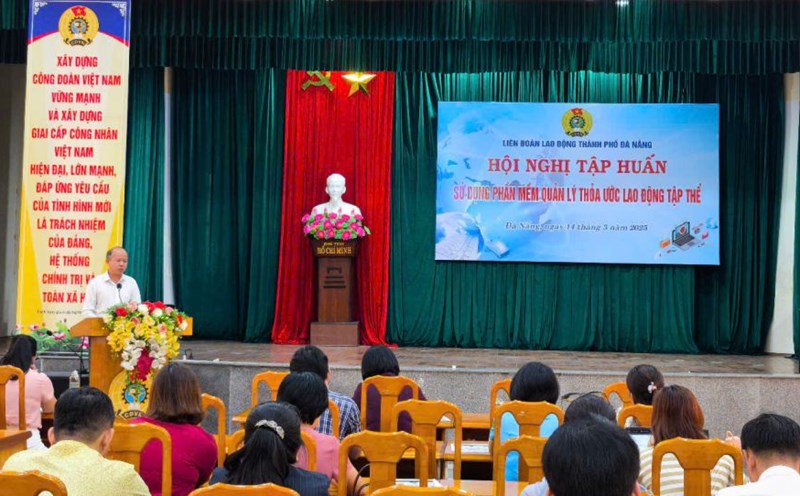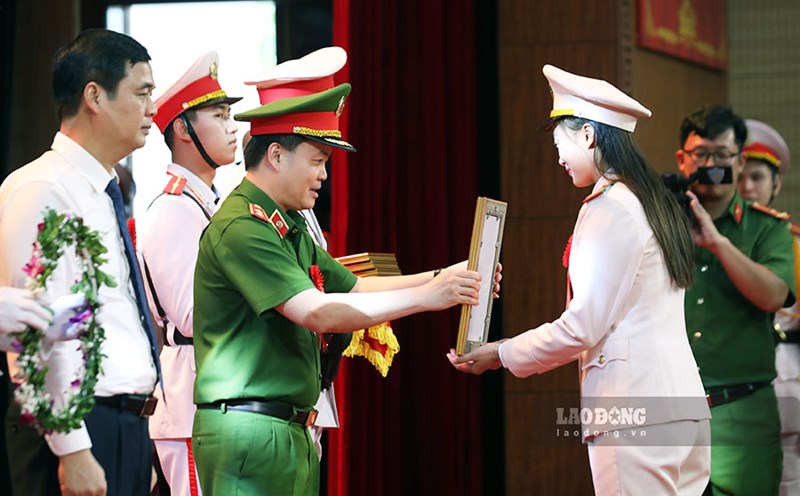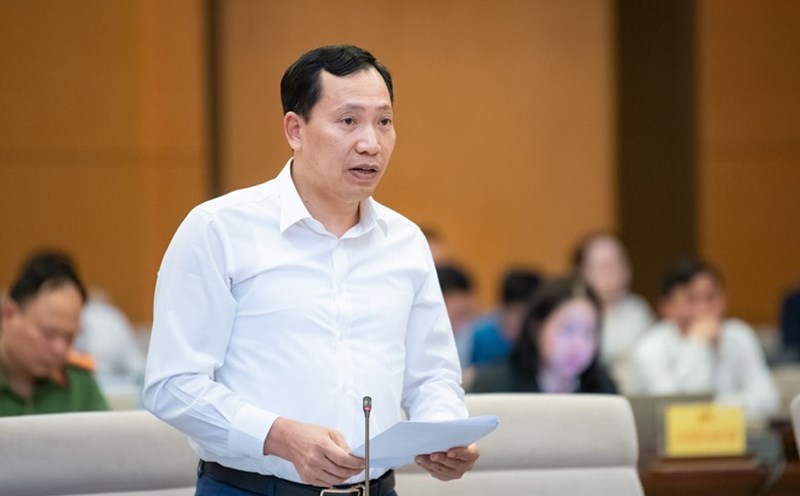Harmonious benefits, shared risks
Discussing the practice of negotiating to sign collective labor agreements (CLAs), Mr. Nguyen Dinh Thang analyzed: The purpose of production and business activities is to create profits for businesses; where Profit = Revenue - Cost (therefore businesses always seek ways to reduce costs). In negotiations, if both sides win together, it will be sustainable, building harmonious, stable and progressive labor relations in enterprises, promoting sustainable business development.
The valuable experience that Mr. Thang has gained from the time he directly dialogue and negotiates to sign collective labor agreements in places where grassroots trade unions have not been established according to the provisions of the Labor Code in 2012 is how to solve the problem of how to increase labor productivity higher than increase costs.
Mr. Thang explained that this is the way to make the "profit cake" of a business grow up to enjoy more.
At that time, during his work with business leaders, Mr. Thang often discussed that if business leaders increase wages for employees, it is to motivate employees to increase labor productivity, improve product quality, compensate for the increase in the CPI, and at the same time share difficulties with employees, keeping employees attached to the business. This means retaining employees through policy mechanisms... The cost-saving plan applied by businesses is not the optimal because of low labor productivity, low product quality, and employees moving to other businesses with better salary and benefits... while recruiting workers in industrial parks is not easy.
Focus on guiding and supporting grassroots trade unions to negotiate on wages
Currently, the Hanoi Industrial Parks and Export Processing Zones Trade Union is directly managing 365 grassroots unions with over 150,000 workers, of which nearly 150,000 are union members. The quantity and quality of the collective labor agreements have been improved. The Collective Labor Agreement has reached nearly 70%, of which the Collective Labor Agreement with negotiated salary content accounts for nearly 60%.
From experience as well as from practice, the Hanoi Industrial Parks and Export Processing Zones Trade Union organized training and provided legal regulations on dialogue and collective bargaining on the implementation of the Law on Grassroots Democracy Implementation on dialogue skills, collective bargaining...; organized a seminar to share experiences on collective labor agreements between grassroots trade unions... Especially focusing on guiding and supporting grassroots trade unions in a hand-held manner in negotiating on wages, bonuses, allowances, subsidies, working conditions...
For example, choosing the time to conduct a dialogue; having to choose the time when many orders and companies organize overtime to ensure delivery, not being able to negotiate on salary increases during the period of unemployment... What is more beneficial than what the law stipulates is to be signed to ensure a concise and quality collective labor agreement.
Along with training skills and skills for grassroots trade union officials, the Hanoi Industrial Parks and Export Processing Zones Trade Union provides a summary of salary increase adjustments, allowances, subsidies... of enterprises in the industry sector for grassroots trade union officials to refer to before making proposals and recommendations.
One of the activities focused on by the Hanoi Industrial Parks and Export Processing Zones Trade Union is to grasp the ideological situation, employment, income, and life of union members and workers; promptly handle problems arising in labor relations. At the same time, it guides public opinion among union members and employees, avoiding labor disputes and collective work stoppages, thereby building harmonious, stable and progressive labor relations in enterprises, contributing to ensuring security and order in Hanoi's 1-0 industrial parks.











